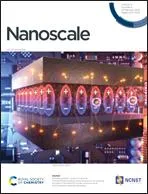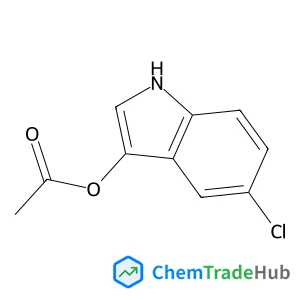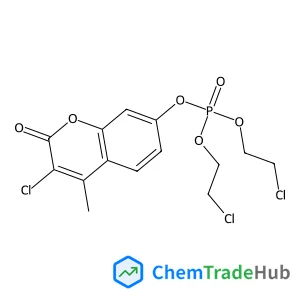Rose-like Pd–Fe3O4 hybrid nanocomposite-supported Au nanocatalysts for tandem synthesis of 2-phenylindoles
文献情報
Hyunje Woo, Ji Chan Park, Sungkyun Park, Kang Hyun Park
A facile synthesis of rose-like Pd–Fe3O4 nanocomposites via controlled thermal decomposition of Fe(CO)5 and reduction of Pd(OAc)2, followed by the immobilization of Au nanoparticles (NPs) onto the Pd–Fe3O4 supports, is reported. The morphology of these hybrid nanostructures could be easily controlled by varying the amount of Fe(CO)5 and the reaction temperature. Moreover, the synthesized Au/Pd–Fe3O4 catalyst exhibited high catalytic activity for the tandem synthesis of 2-phenylindoles and demonstrated magnetic recyclability.
関連文献
IF 6.367
Inside back coverIF 6.222
An elemental S/P photocatalyst for hydrogen evolution from water under visible to near-infrared light irradiationIF 6.222
An environmentally friendly natural polymer as a universal interfacial modifier for fullerene and non-fullerene polymer solar cellsIF 6.367
Retraction: Chemical synthesis and antigenic activity of a phosphatidylinositol mannoside epitope from Mycobacterium tuberculosisIF 6.222
Nickel-containing N-doped carbon as effective electrocatalysts for the reduction of CO2 to CO in a continuous-flow electrolyzerIF 6.367
CaMoO4 nanosheet arrays for efficient and durable water oxidation electrocatalysis under alkaline conditionsIF 6.222
Synthesis and optical and electronic properties of one-dimensional sulfoxonium-based hybrid metal halide (CH3)3SOPbI3IF 6.222
High-performance tungsten carbide electrocatalysts for the hydrogen evolution reactionIF 6.367
Facile room-temperature growth of nanostructured CuBi2O4 for selective electrochemical reforming and photoelectrochemical hydrogen evolution reactionsIF 6.367
掲載誌
Nanoscale

Nanoscale is a high-impact international journal, publishing high-quality research across nanoscience and nanotechnology. Nanoscale publishes a full mix of research articles on experimental and theoretical work, including reviews, communications, and full papers. Highly interdisciplinary, Nanoscale appeals to scientists, researchers and professionals interested in nanoscience and nanotechnology, quantum materials and quantum technology, including the areas of physics, chemistry, biology, medicine, materials, energy/environment, information technology, detection science, healthcare and drug discovery, and electronics. For publication in Nanoscale, papers must report high-quality reproducible new work that will be of significant general interest to the journal's wide international readership. Nanoscale is a collaborative venture between the Royal Society of Chemistry Publishing and a leading nanoscience research centre, the National Center for Nanoscience and Technology (NCNST) in Beijing, China. image block The journal publishes weekly issues, complementing and building on the nano content already published across the Royal Society of Chemistry Publishing journal portfolio. Since its launch in late 2009, Nanoscale has established itself as a platform for high-quality, cross-community research that bridges the various disciplines involved with nanoscience and nanotechnology, publishing important research from leading international research groups.
おすすめ化合物
おすすめサプライヤー
 フランスほう砂
フランスほう砂 深セン市九牧水处理科技有限公司
深セン市九牧水处理科技有限公司 LECO Instrumente GmbH
LECO Instrumente GmbH Waagen Scheffknecht有限公司
Waagen Scheffknecht有限公司 ARTA Armaturen—und Tankgerätebau GmbH & Co. KG
ARTA Armaturen—und Tankgerätebau GmbH & Co. KG Apexbioテクノロジー株式会社
Apexbioテクノロジー株式会社 五洲東方科学技術発展有限公司
五洲東方科学技術発展有限公司 湖南ナシャン電子科技有限公司
湖南ナシャン電子科技有限公司 ITAS スパ
ITAS スパ 安徽異取同供バイオテクノロジーカンパニー
安徽異取同供バイオテクノロジーカンパニー











![57423-71-9 - (1R,2R,4R,6S,11R,12S,15R,18S,19R,20S,21S,23R,26R)-15-Hydroxy-11,18,21-trimethyl-5,17,24,28,29-pentaoxanonacyclo[17.9.1.1~1,20~.0~2,12~.0~4,6~.0~6,11~.0~15,19~.0~18,23~.0~21,26~]triacont-8-ene-10,16,25
,30-tetrone 57423-71-9 - (1R,2R,4R,6S,11R,12S,15R,18S,19R,20S,21S,23R,26R)-15-Hydroxy-11,18,21-trimethyl-5,17,24,28,29-pentaoxanonacyclo[17.9.1.1~1,20~.0~2,12~.0~4,6~.0~6,11~.0~15,19~.0~18,23~.0~21,26~]triacont-8-ene-10,16,25
,30-tetrone](/structs/574/57423-71-9-78dc.webp)


